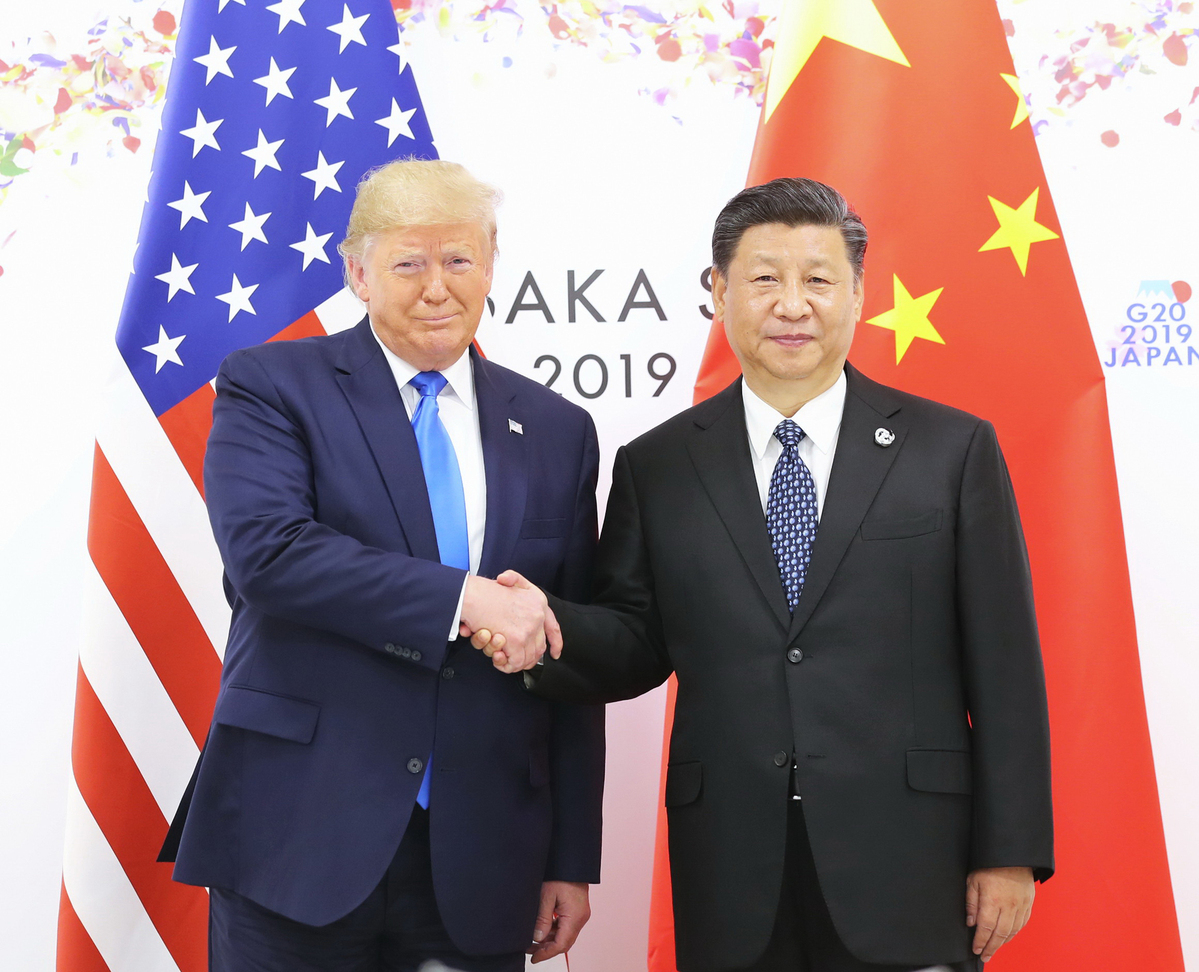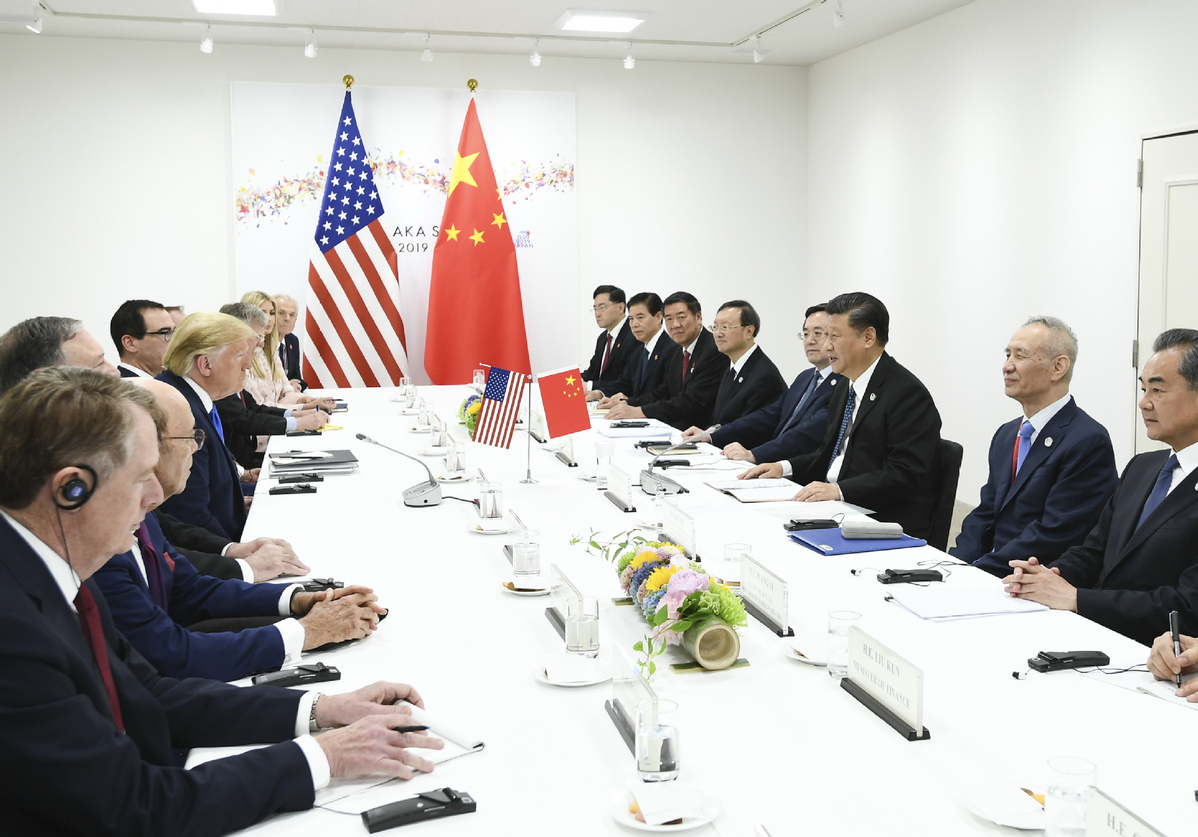Experts laud Xi-Trump meeting as positive signal for future trade ties
Xinhua/chinadaily.com.cn | Updated: 2019-06-30 17:55

BEIJING - The agreement between the presidents of China and the United States on Saturday to restart trade consultations sent a positive message to the world, experts and industry insiders have said.
On the sidelines of a summit of the Group of 20 major economies in the Japanese city of Osaka, President Xi Jinping and his US counterpart Donald Trump agreed to restart economic and trade consultations between their countries on the basis of equality and mutual respect.
The two leaders also agreed that the US side will not add new tariffs on Chinese exports, and a China-US relationship featuring coordination, cooperation and stability should be advanced.
Swaran Singh, a professor from the School of International Studies at the Delhi-based Jawaharlal Nehru University in India, said the meeting "brought a very positive outcome."
"And I think that positive outcome brings great relief to international markets and several other countries who are noticing the negative trend in global economic growth rates," he added.
Antoine Bondaz, a research fellow at the Foundation for Strategic Research, a leading French think tank, said the consensus reached between the two leaders is crucial for future negotiations.
Saturday's meeting was necessary for stabilizing the markets, bolstering investor confidence and promoting global development, Bondaz said, adding that stable China-US trade ties are an indispensable precondition to global economic growth.
Cooperation between Beijing and Washington will benefit both while confrontation will cause them harm, said Zhu Jianrong, professor at Toyo Gakuen University of Japan.
Zhu said he expects the two sides to enhance trade cooperation, push forward bilateral ties, and uphold the international trading system.
Chris Rowley, professor at Kellogg College, University of Oxford, said the sideline meeting at the G20 produced a welcome, albeit somewhat unexpected, outcome – to resume talks to ease trade tensions. "As Winston Churchill is allegedly to have remarked at a White House meeting and luncheon in 1954: 'to jaw-jaw is always better than to war-war'", he said. The trade wars hit both China and the US, damaging not only Chinese businesses, investment and exports but also US exporters, consumers and voters as well.
Meanwhile, US business and industry insiders, who had previously voiced deep concern over a possibility of an escalating trade dispute before the Xi-Trump meeting, hailed the agreement clinched on Saturday and expected more progress in the talks to come.

Jay Timmons, president and chief executive of the National Association of Manufacturers, said in a statement that a trade deal is "exactly what manufacturers have advocated over the last year and a half."
"Manufacturers are encouraged that the two countries will refrain from escalating tariffs further to allow for new rounds of negotiation," the statement said, adding that the Xi-Trump meeting "brings us closer" to a trade deal.
The US-China Business Council said its members "are pleased that the United States and China have agreed to get back to the negotiating table on trade issues and to postpone further escalation of their tariff battles."
David French, senior vice president of government relations at the National Retail Federation, said that his organization welcomes the progress made during this meeting.
"Pulling back from the brink of further tariff escalation is a good sign for retailers and their customers, and we look forward to continued progress in the talks with China so that further tariffs can be avoided and existing ones lifted."
Bo Leung in London contributed to this story.
- Xi's trip to Osaka drives multilateralism, G20 cooperation, global economy
- Xi-Trump meeting puts focus back on dialogue
- US says it will not add new tariffs on Chinese exports
- China sincere in continuing trade talks with US -- Xi
- Xi calls for US fair treatment of Chinese enterprises, students
- Trump says not hostile towards China
























